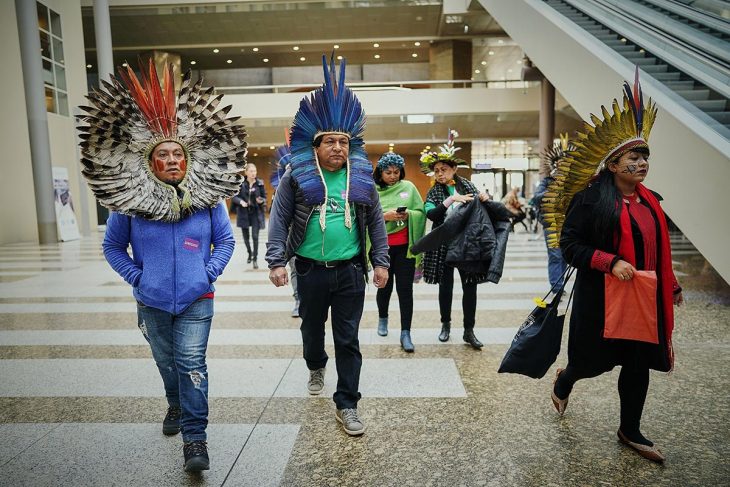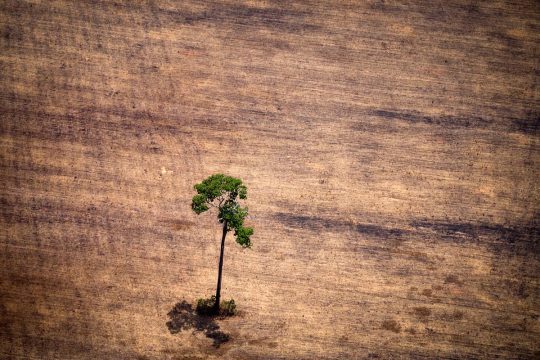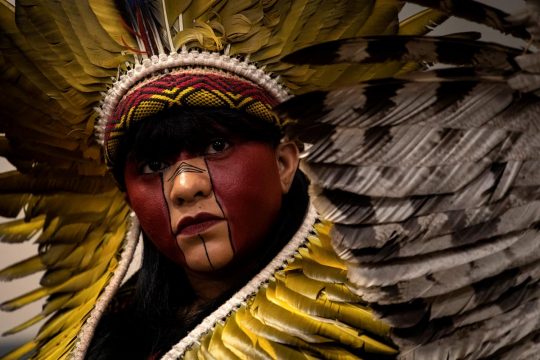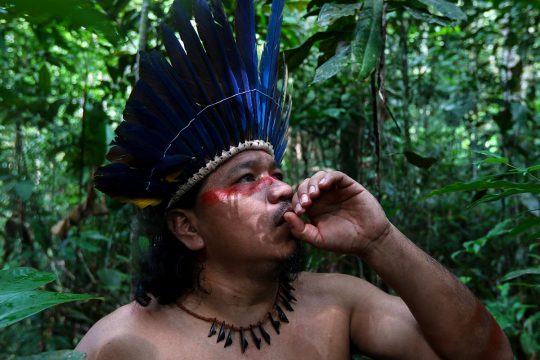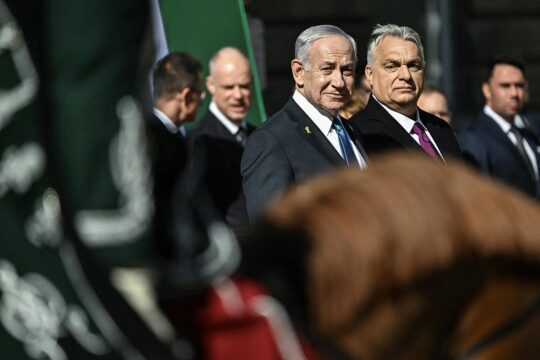On November 1, Paulo Paulino, the young leader of the Guajajara ethnic group, was ambushed and murdered on the Araribóia indigenous land in the Amazon. He was one of the "guardians of the forest" acting to prevent intruders, gold panners or loggers from encroaching on their territories. His murder is one of the many reasons that led two Brazilian organizations to file a communication last month to the International Criminal Court (ICC) Prosecutor against Brazilian President Jair Bolsonaro for crimes against humanity and incitement to genocide against indigenous people.
"Under the pretext of developing the Amazon, the Bolsonaro government is encouraging attacks on Brazilian indigenous people and their lands," says the document prepared by the Arns Commission and the Collective of Human Rights Lawyers (CADHU), two groups defending human rights in Brazil, which has been a State Party to the ICC since its creation in 2002. "Heads of State and Government have a duty, within the framework of international law to prevent crimes and protect vulnerable populations,” they argue.
President Bolsonaro has frequently criticized the land demarcation policy that allows indigenous people to live peacefully in their territories, and has wished to develop mining and agricultural activities as well as infrastructure works. He has never concealed his desire to assimilate indigenous people with the rest of the Brazilian population. "Our indigenous people, or most of them, are condemned to live as prehistoric men (sic) within our own country. This must change," he said in Manaus at the end of November. "Why reserve a space where you can't do anything? We want them to do on his land exactly what the farmer does next door, including the exploitation of mineral resources."
“Incitement to violence”
In power for less than a year, the far-right president has been accused by the Arns Commission and CADHU of inciting violence against indigenous people, weakening control mechanisms and failing to take action to prevent environmental crimes in the Amazon. The first obvious example, cited in the communication to the ICC, is the National Indian Foundation (Funai), whose official mission is to "protect and promote the rights of indigenous peoples, on behalf of the State". It was itself targeted. Due to a lack of resources, it has become unable to protect its employees. This was particularly the case when violence recently broke out in the Vale du Javari "Indigenous Land" in Amazonas State. "The Funai base at the confluence of two very important rivers in the region has been machine-gunned three times in the past six months. Two employees were killed in Tabatinga. Recently, the Funai technicians simply left the premises because they didn't feel safe," explains a local manager. He points out that pressure from loggers and gold panners is increasing, in alliance with local drug traffickers.
“Programmed extermination”
As for the Indigenous Missionary Council (CIMI), it does not hesitate to talk of a "programmed extermination of the indigenous peoples". "This is not only an omission but a deliberate act of the federal government to allow these people to be massacred," the Catholic group says. CIMI has initiated legal proceedings against the new president of Funai, Marcelo Augusto Xavier da Silva, appointed by Bolsonaro. It criticizes him for defending the interests of landowners. The Funai leader, a former commissioner of the federal police, is suspected of taking sides against the indigenous people. In the state of Paraná (southern Brazil), CIMI claims that 30 families of the Kaingang tribe are currently threatened with eviction. "There was a court decision in their favour, but the president of Funai gave the order to abandon the judicial proceedings," explains Antônio Eduardo Oliveira, executive secretary of CIMI, who filed a complaint with the federal prosecutor against the president of Funai. "There is a relationship between what Mr. Bolsonaro says and the invasion of indigenous territories and dismantling of oversight bodies provided for in the Constitution (...) He has shown that he is seriously endangering the lives of indigenous people. He is fomenting discrimination, hatred, and violence against them.”
Another example of "invasion" comes from the Araguaia basin, between the states of Mato Grosso and Tocantins. Farmers have settled their livestock on the land of Awa Indians, without any action by the public authorities. In response to this, Luciana Ferraz of the National Civil Society Forum of the River Basin Committees in Cuiabá has just sent a "technical note" to a court in Brasilia to denounce this "aggression". "The current indigenous policy is generating genocide," she asserts.
Dismantling of oversight bodies
The recourse to international justice is motivated by the slowness of local justice and the politicization of some appointments, including that of the Attorney General of Gustavo Aras, whose name did not appear on the traditional shortlist of three candidates suggested by the prosecutors. "The local oversight bodies have been completely dismantled. That's what motivated us to think about launching an international initiative," explains Juliana Vieira of CADHU. She refers to a "real attempt to suffocate civil society organizations" and the ending of partnerships between NGOs and the Ministry of the Environment.
NGOs, from Bolsonaro's perspective, are bad. In July, the Brazilian President cancelled a meeting with French Minister of Foreign Affairs Jean-Yves Le Drian at the last minute because he had held talks with environmental NGOs. This was a diplomatic incident that turned into a real clash with Paris after the forest fire controversy in August. Bolsonaro accused NGOs of starting these forest fires and, in November, four young volunteer firefighters were detained for this reason in the Amazon, before being released shortly afterwards.
Vieira says Bolsonaro's rhetoric constitutes "incitement to violence against environmental activists and indigenous people". "We want to show that there is a link between environmental degradation and armed attacks, illegal mining operations, the spread of agriculture into the forest, so that indigenous people are expelled from their lands and find themselves in the most insecure situation, which calls into question their own identity," she says. This situation sometimes degenerates into violence, as in the case of Paulino's murder, which is still unsolved. "The investigation is at a standstill. The government has failed to shed light on this case," Vieira added. On December 8, two more Guajajara people were murdered in the native land of Cana Brava in Maranhão State.


